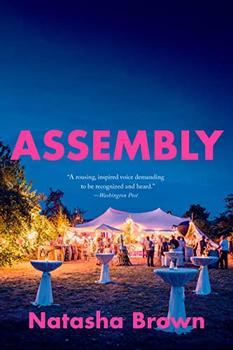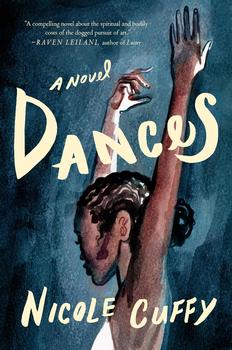Summary | Excerpt | Reviews | Beyond the book | Read-Alikes | Genres & Themes | Author Bio

A woman confronts the most important question of her life in this blistering, fearless, and unforgettable literary debut from "a stunning new writer" (Bernardine Evaristo).
Come of age in the credit crunch. Be civil in a hostile environment. Go to college, get an education, start a career. Do all the right things. Buy an apartment. Buy art. Buy a sort of happiness. But above all, keep your head down. Keep quiet. And keep going.
The narrator of Assembly is a black British woman. She is preparing to attend a lavish garden party at her boyfriend's family estate, set deep in the English countryside. At the same time, she is considering the carefully assembled pieces of herself. As the minutes tick down and the future beckons, she can't escape the question: is it time to take it all apart?
Assembly is a story about the stories we live within – those of race and class, safety and freedom, winners and losers. And it is about one woman daring to take control of her own story, even at the cost of her life. With a steely, unfaltering gaze, Natasha Brown dismantles the mythology of whiteness, lining up the debris in a neat row and walking away.
What makes Brown's story so affective and effective is that she writes lovely passages of her narrator's conflict: her external success and internal doubt. At work, despite her $2,000 office chair and corner window, she is seen as nothing more than a diversity hire, which leaves her feeling powerless despite her achievements. And at home, her privileged white boyfriend diminishes her wounds, suggesting that his wealth is the same as her success. There is no escaping her invisibility. I appreciated the vignette style of Brown's writing more than I expected to. Assembly feels like tiny pieces of light stitched together with a thread that at any moment could break apart. The author is inventive and historical and poetic. She has written a personal story of racial wounds...continued
Full Review
(784 words)
This review is available to non-members for a limited time. For full access,
become a member today.
(Reviewed by Valerie Morales).
Psychologists Pauline Clance and Suzanne Imes first identified "imposter phenomenon," popularly known as "imposter syndrome," in 1978. It is characterized by a belief that one's success is accidental. Clance and Imes' research was based on high achieving women who couldn't accept the success they had created and were frightened others would find out they were frauds. Marginalized people can be especially vulnerable to imposter syndrome. Natasha Brown powerfully demonstrates the phenomenon in her debut novel Assembly. The narrator, a British Jamaican woman working in finance in London, questions herself and her success.
Argentine American journalist Marina Peña has published a powerful essay about her imposter syndrome as an ...
This "beyond the book" feature is available to non-members for a limited time. Join today for full access.

If you liked Assembly, try these:

by Natasha Brown
Published 2025
Remember—words are your weapons, they're your tools, your currency: a twisty, slippery descent into the rhetoric of truth and power from a "powerful new voice in British Literature" (The Sunday Times).

by Nicole Cuffy
Published 2024
A provocative and lyrical debut novel follows a trailblazing Black ballerina who must reconcile the ever-rising stakes of her grueling career with difficult questions of love, loss, and her journey to self-liberation, from a sensuous new voice in fiction.
A library, to modify the famous metaphor of Socrates, should be the delivery room for the birth of ideas--a place ...
Click Here to find out who said this, as well as discovering other famous literary quotes!